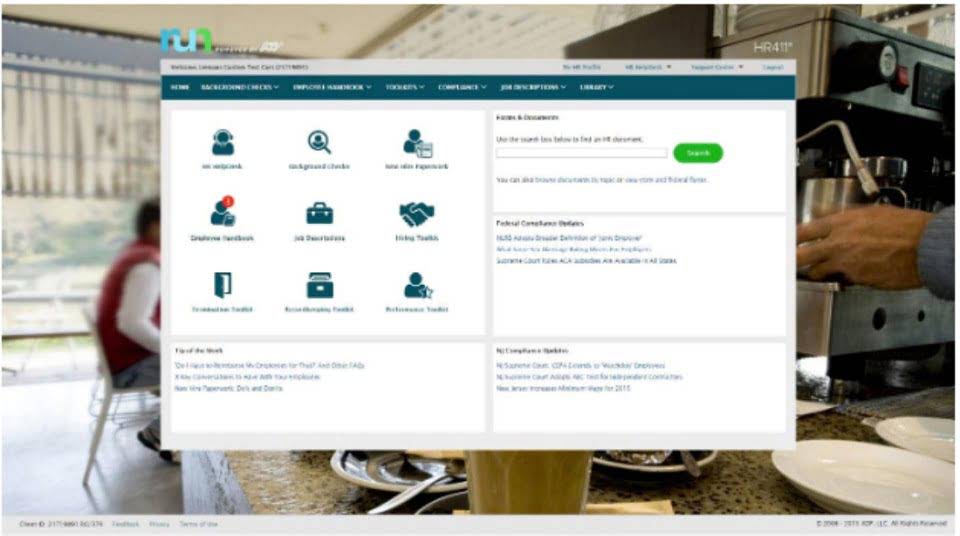
You won’t have to rely on someone who works at your marketing agency to perform multiple roles or to reach outside their comfort zone to handle the financials. This empowers them to make well-informed decisions based bookkeeping for marketing agencies on up-to-date information regarding their finances. It’s important to complete these tasks each month to ensure that your financial records are accurate and up to date. This can help you make informed decisions about your marketing agency’s finances and improve your financial management. The fourth step in setting up accounting for your marketing agency is to connect your bank accounts, credit cards, and payment processors to your accounting software. Thorough accounting practices and maintenance of financial records help a marketing agency understand the basic issue of cash flow.

Setting up your marketing agency’s accounting software
A marketing agency that offers several payment methods can normal balance encourage customers to settle their invoices much faster. However, before offering individual payment options, it is important to understand the cost of each option. Check and analyze price structure or switch to a subscription-based pricing model rather than project-based or hourly pricing to improve the stability of inflows. If you own a Marketing agency, you will understand the relevance of free cash flow to keep your business going. For this, you need to optimize your accounts receivable strategy so that you can bill more quickly and accurately. Receiving payments is only part of the overall strategy for advertising agency billing, but receiving payments is very important.
- The accrual method solves this problem by recognizing the billing as June revenue regardless of the month in which the agency collected payment for the billing.
- Or if expenses are higher than anticipated, you can investigate why and either cut the expenses or revise your budget as appropriate.
- Integrations can simplify your agency’s accounting when the alternative is to manually import data into your accounting software.
- At Fusion CPA, we are well-versed in the latest accounting software and technologies.
- If your agency pays suppliers using payment terms, then it’s important to track payables in its accounting system.
Navigating the World of Bookkeeping for Marketing Agencies
- Senior managers may handle cross-departmental responsibilities such as coordinating cross-selling initiatives and helping develop niche marketing plans.
- As your agency scales and as you become more detached from the operations side, you’ll need consistent financial reporting across time periods.
- Resources such as accounting software, professional services, and industry publications are available to assist marketing agencies in ensuring compliance with accounting standards.
- You can see that at 60 accounts receivable days, this company had to dip into their line of credit.
- The first step of your agency’s bookkeeping process should be to close out invoices in its accounting system.
- In reality, your agency might not carry an accounts payable balance if it pays most of its bills with a credit card.
QuickBooks, in its desktop and online versions, is one of the most popular business accounting software suites for small and medium-sized businesses. While the software is less customizable and flexible than Sage Intacct, its features can be manipulated and adjusted to suit your business’s needs. Additionally, the cloud-based online version offers a variety of integrations that can be used to expand the basic software’s capabilities. Several different levels of QuickBooks, offering a variety of different features and capacities, are available, making it a highly affordable option for SMBs. The main reason to use accounting software is that it automates manual processes that otherwise waste your time, energy, and resources. Look for accounting software that provides a high level of automation both within the software’s basic features and in the form of fully integrated third-party applications.
- Accounts with no activity or minimal activity can be reconciled less frequently.
- Utilize accounting software or spreadsheets to record all revenue sources and accurately categorize expenses.
- This step involves applying client payments to invoices and matching the payments to bank deposits.
- Specialists are becoming more common as firms grow and marketing becomes more sophisticated.
- Your financial statements typically include a balance sheet, income statement, and cash flow statement.
- Like other paid options, it includes basic invoicing and payment processing features that sync with the rest of your accounting system.
- A well-mapped career path is critical to keeping employees engaged and committed to their roles.
Billing Methods and Financial Reporting

Marketing agencies typically have multiple expense categories, including advertising campaigns, content creation, digital marketing tools, overhead expenses, salaries, and subcontractor fees. Breaking down expenses by category helps assess cost effectiveness and optimize resource allocation. Bookkeeping serves as the backbone of financial management for marketing agencies. It provides a clear picture of your agency’s financial health, enables accurate decision-making, and ensures compliance with tax regulations. By maintaining organized financial records, you gain valuable insights into your agency’s profitability, identify areas for cost savings, and have a solid foundation for growth.


A payables balance that increases month-over-month could indicate that your agency is struggling to pay its bills on time, hurting its relationships with suppliers. Therefore it’s important to monitor this account on the balance sheet to identify any bills that have been unpaid for more than 30, 60 or 90 days. Tracking your agency’s WIP balances can prevent cash flow and capacity issues, since WIP represents labor costs incurred but not yet recouped.
- To avoid this mistake, implement technology for real-time expense tracking and encourage employees to allocate expenses consistently.
- The second step to setting up accounting for your marketing agency is to choose between cash or accrual accounting for your bookkeeping.
- For example, you would be able to see how a client missing their payment due date will impact your cash position.
- Marketing firm leaders do not have to navigate the challenges of choosing, setting up, and using business accounting software all on their own.
- If your SEO is dialed-in, resulting in an abundance of potential customers visiting, but the site doesn’t invite them any further, you are missing a huge opportunity.
- A deficit on either side of the column indicates an imbalance of either revenue or expenses, meaning you have a more accurate idea of your ROI for business expenses, total revenue, etc.
- It forces you to think hard about the steps you could take if you had to, in an emergency, and to shake out any inefficiencies.
Every day people are looking for tax help, bookkeeping, payroll services, and a great CPA to guide them through challenging financial waters. While you are probably an expert in those things, you probably aren’t https://www.facebook.com/BooksTimeInc an expert in CPA marketing. We can streamline your accounting through the latest tracking software and technology stacks. Our team can customize your accounting software dashboard to include specific campaign data, to reduce risks and strengthen your advertising.
Tax Services
The third step in setting up accounting for your marketing agency is to purchase an accounting software to use for your bookkeeping and accounting. When a marketing agency writes a check and sends it to the appropriate service provider, it credits its cash account and debits the seller’s accounts payable to zero. In accounting terms, depositing into a cash account means reducing the company’s money.
